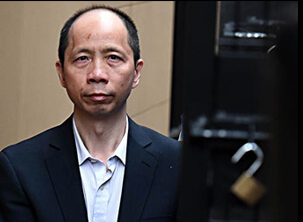The Sue Neill-Fraser appeal will not be heard until next year (2020). Directions hearing at 4 pm today was before Wood J., Coates and Shapiro for the Crown. Chris Carr for Sue Neill Fraser appeared from Melbourne via video. Her lawyers have until 28 October to get their appeal book index in (and appeal books shortly thereafter) and the DPP has until 20 December to consider it and get his material in. Extra time might be needed re Agreed Facts. Early iIndications are that the appeal may go for one to two weeks. Wood indicated that it appeared that the appeal would go ahead in early 2020. Her Honour set the matter down for a directions hearing to check progress for 4 pm on 12 November 2019.
-
Sign Up
Categories
- Case 01 Sue Neill-Fraser (275)
- Case 02 Henry Keogh (15)
- Case 03 David Szach (4)
- Case 04 Gordon Wood (12)
- Case 05 Derek Bromley (31)
- Case 06 'Paul' (13)
- Case 07 George Pell (12)
- Case 08 Sarah May Ward (1)
- Case 09 Joby Rowe (1)
- Case 10 Steven Fennell (2)
- Case 11 Robert Xie (48)
- Case 12 Bradley Murdoch (2)
- Case 13 Robert Farquharson (10)
- Case 14 Scott Austic (2)
- Case 15 John Fleming (1)
- Case 16 Eddie Howard (1)
- Case 17 Kathleen Folbigg (28)
- Case 18 Bruce Lehrmann (51)
- Case 19 Marco Rusterholz (10)
- Case 20 The Cook family (1)
- Case 21 'Mr & Mrs X' (1)
- Case 22 Noel Greenaway (22)
- Case 23 Lucy Letby (3)
- Case 24 Fr Gordon MacRae (4)
- Case 25 Cedric and Noelene Jordan (1)
- Case 26 Frank Valentine (14)
- Case 27 Graham Stafford (1)
- Case 28 Stephen Shorty Jamieson (2)
- CCRC (25)
- Forensic evidence (16)
- General articles (212)
- Lindy Chamberlain (1)
- S & D Struber (1)
- Shaken Baby Syndrome (6)
- Stephen & Dianne Struber (1)
- Uncategorized (15)
-
Recent Posts
- Forensic science services in crisis – loyalty to courts or police?
- “You’ve got the wrong Shorty!”
- Briefings for Tasmanian MPs on debate re Sue Neill-Fraser inquiry
- FREE symposium on the wrongful rape & murder conviction of Stephen ‘Shorty’ Jamieson
- Can Australian justice system learn from major UK report?
Recent Comments
- Jack Jones on Forensic science services in crisis – loyalty to courts or police?
- Garry Stannus on Forensic science services in crisis – loyalty to courts or police?
- andrew on Forensic science services in crisis – loyalty to courts or police?
- Steven Fennell on Forensic science services in crisis – loyalty to courts or police?
- andrew on Forensic science services in crisis – loyalty to courts or police?
Archives
- February 2026
- January 2026
- December 2025
- November 2025
- October 2025
- September 2025
- August 2025
- July 2025
- June 2025
- May 2025
- April 2025
- March 2025
- February 2025
- January 2025
- December 2024
- November 2024
- October 2024
- August 2024
- July 2024
- June 2024
- May 2024
- April 2024
- March 2024
- February 2024
- January 2024
- December 2023
- November 2023
- September 2023
- August 2023
- July 2023
- June 2023
- May 2023
- April 2023
- March 2023
- February 2023
- January 2023
- December 2022
- November 2022
- October 2022
- September 2022
- August 2022
- July 2022
- June 2022
- May 2022
- April 2022
- March 2022
- February 2022
- January 2022
- December 2021
- November 2021
- October 2021
- September 2021
- August 2021
- July 2021
- June 2021
- May 2021
- April 2021
- March 2021
- February 2021
- January 2021
- December 2020
- November 2020
- October 2020
- September 2020
- August 2020
- July 2020
- June 2020
- May 2020
- April 2020
- March 2020
- February 2020
- January 2020
- December 2019
- November 2019
- October 2019
- September 2019
- August 2019
- July 2019
- June 2019
- May 2019
- April 2019
- March 2019
- February 2019
- January 2019
- December 2018
- November 2018
- October 2018
- September 2018
- August 2018
- July 2018
- June 2018
- April 2018
- March 2018
- February 2018
- January 2018
- November 2017
- February 2016
- November 2015
- September 2015
- May 2015
- March 2015
- February 2015
- January 2015
- December 2014
- November 2014
- September 2014
- August 2014
- July 2014
- February 2014
- January 2014
- December 2013
- November 2013
- October 2013
- August 2013
Meta

